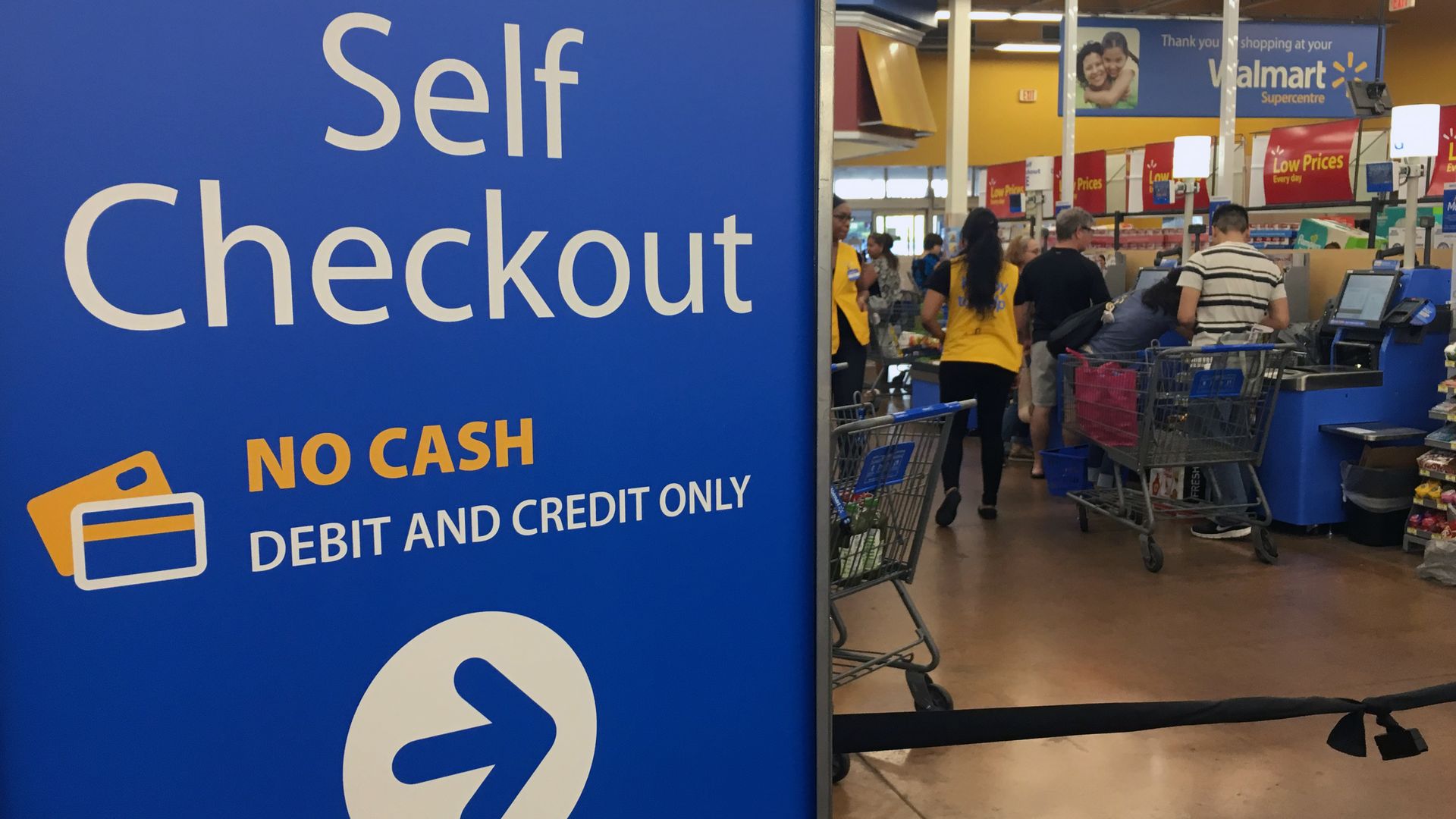What the future of work looks like today
Add Axios as your preferred source to
see more of our stories on Google.

Photo: Roberto Machado Noa/LightRocket/Getty
Projections of job changes from automation reach decades into the future, but the early shoots of these changes are visible already.
Why it matters: Today's workplace, with its social inequities and imbalanced power dynamics, will define the future of jobs.
Driving the news: A report out this week from New America is built on 40 in-depth interviews with workers on the front line of technology-fueled job chaos.
- It found that many, especially in low-paying jobs, are already being tossed about in a storm of uncertainty and instability. This work — disproportionately done by women and people of color — is most likely to be upended by technology.
- Among the jobs most at risk are in fast-food chains, grocery stores, retailers and in back-office administrative and clerical roles.
"Job quality today — hours, compensation, benefits, stability — is such an important part of the conversation on the future," said Molly Kinder, a report co-author, at a launch event in Washington, D.C. on Thursday.
- "Technology is already here today, part and parcel of people's jobs," Kinder said. "And we've heard that those technological changes really have picked up in the last few years."
- She pointed to mobile ordering like Uber Eats, online shopping, self-checkout and self-ordering kiosks in fast-food spots — plus software that is automating some office work.
Key quotes: In the report and at the event, workers sounded off about the technologies magnifying existing problems like lack of benefits and insufficient hours.
- "We used to have three cashiers there; now there’s computers and one cashier," a 29-year-old fast-food worker told researchers.
- A new grocery checkout system "wasn't ergonomically right; it hurt the body," said Cordelia Cooper, a cashier who spoke at the Thursday event. "And they didn't come and ask us, 'Well, how is this working out?'"
Reflecting on a new HR software system, Naomi, a 27-year-old apartment complex manager, told researchers, "This is not a great thing because it means one person can do it. They could get rid of me and eliminate my job. The most annoying thing is that your fate is in someone else’s hands. If technology or AI comes in, your job can be lost just like that."
- The bottom line: "A lot of workers felt these were changes that were happening to them," said Kinder. "They lacked any say or voice or agency in the decisions that were being made that so personally impact them."
Go deeper:
